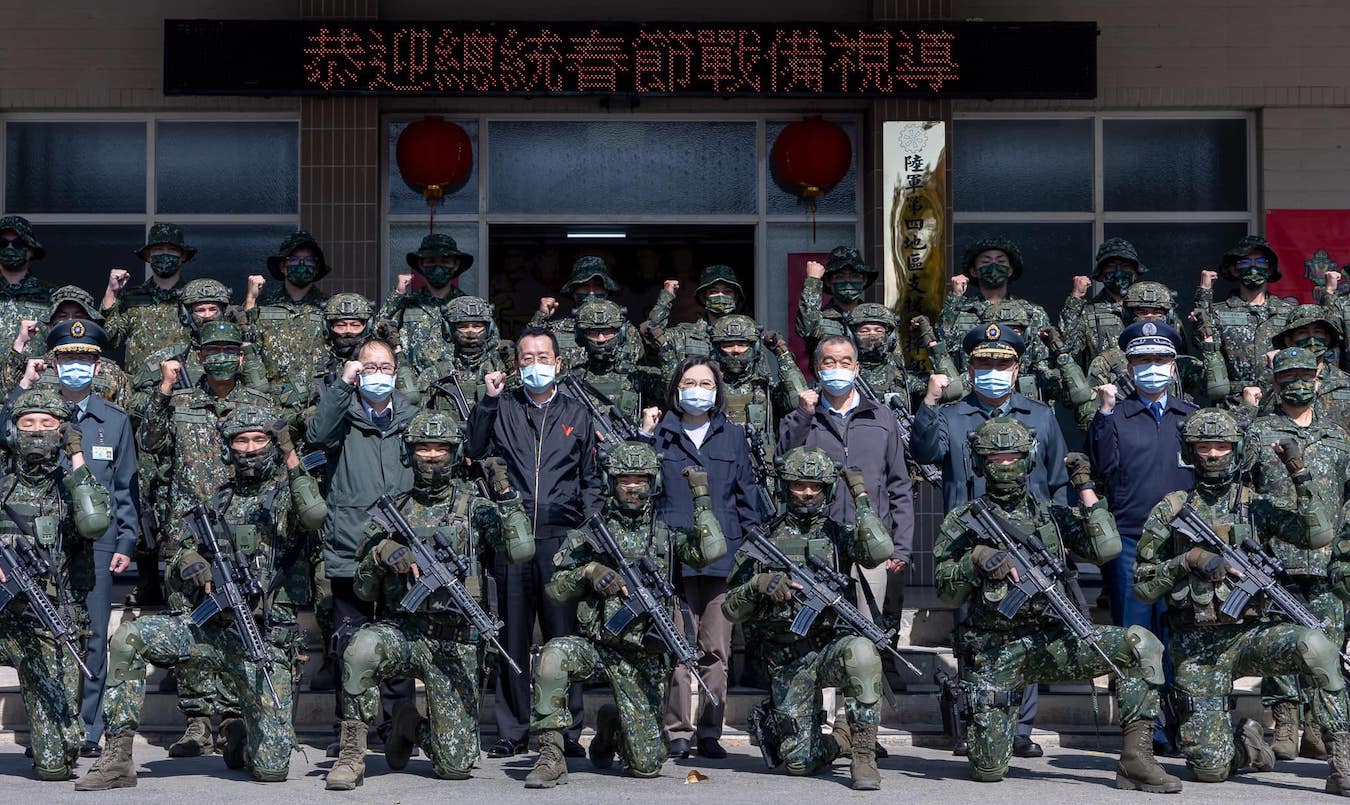by Brian Hioe
語言:
English
Photo Credit: Tsai Ing-wen/Facebook
WESTERN EXPERTS and military officials continue to issue dates for a prospective invasion of Taiwan. The latest such example is a claim by General Mike Minihan of the US Air Force that he believed a war would occur between the US and China over Taiwan in 2025, in a memo that was obtained by the media.
2027 has been a year often discussed as when China would have the military capacity to invade Taiwan. Consequently, the most well-known of the claims that China would invade Taiwan before 2027 was from Admiral Philip Davidson, the former head of the US Indo-Pacific Command, in 2021. Davidson has continued to double down on this claim in the years since then and much commentary specifying a specific window for when China would conduct an invasion has been in reaction to Davidson’s comments. Davidson is currently visiting Taiwan, with a meeting taking place between him and president Tsai Ing-wen today.
Furthermore, 2027 is when Xi’s next term ends, as a result of which it is thought that this may further incentivize Xi to take action. Namely, Xi may hope to settle the “Taiwan question” before his third term, feeling a sense of urgency.
 General Mike Minihan. Photo credit: US Air Force/Public Domain
General Mike Minihan. Photo credit: US Air Force/Public Domain
Of course, having the military capacity to invade Taiwan proves an entirely different matter than being willing to conduct a costly invasion. China would have to mobilize hundreds of thousands of troops for an invasion and could lose tens of thousands. This could deal a blow to the political legitimacy of the CCP, in sacrificing such a significant number of young lives.
An invasion of Taiwan would also lead to global economic cataclysm, including for China when its electronics supply chains are tightly linked with Taiwan. Likewise, just the impact on the Taiwanese economy alone, based on size, would send the world into crisis, not to mention the effect on an already slowing Chinese economy. Consequently, the CCP would have to weather the severe economic impact, and how this affects public sentiment in society, another potential blow to its political legitimacy.
Yet in recent memory, one has seen western experts claim that there is a one hundred percent chance that Xi Jinping will try to invade Taiwan before 2027. Last year, in the last months of 2022, some experts even claimed that the US needed to prepare for that Xi might potentially an invasion before the end of the year–never mind that the logistical preparation of an invasion would in itself likely require several months and by that time, it was too late for an invasion to take place before December. It is increasingly common for experts to toss out probabilities as to the odds of an invasion taking place that seemed hardly based on any factual data.
Certainly, we live in the age of “hot takes”, as a result of which sometimes commentators may simply be seeking to outdo each other with their statements. Likewise, as the aftermath of the Pelosi visit to Taiwan went to show, there is a significant gap in perceptions between inside Taiwan and outside of it.
 President Tsai Ing-wen (center) in a photo with military. Photo credit: Tsai Ing-wen/Facebook
President Tsai Ing-wen (center) in a photo with military. Photo credit: Tsai Ing-wen/Facebook
Even as the international media discussed the possibility of conflict erupting over Taiwan as an imminent possibility, the public in Taiwan did not have such perceptions. For the most part, life went on as usual, in spite of the fact that Chinese military exercises held in the aftermath of the Pelosi visit took place closer to Taiwan than during the Third Taiwan Straits Crisis. Taiwan has had decades of coping with Chinese threats, which may explain the reaction.
The concern raised by western experts continues in a similar tenor as before, then, as seen with the comments by Minihan. More generally, one notes that Minihan cited his statement as simply based on “gut feeling.” As with other experts that have made such claims, he may have deliberately sought to be alarmist, so as to lead to further steps being taken for military readiness.
At the same time, one generally wonders if the refrain of western experts emphasizing specific timelines about an invasion of Taiwan will generally lead to warnings about an invasion being looked at less seriously. Namely, such warnings may be taken as something like the boy crying wolf–and when an invasion does actually seem set to occur, such warnings may be evaluated with less seriousness, as simply another alarmist comment from US military officials, made with incendiary aims.

